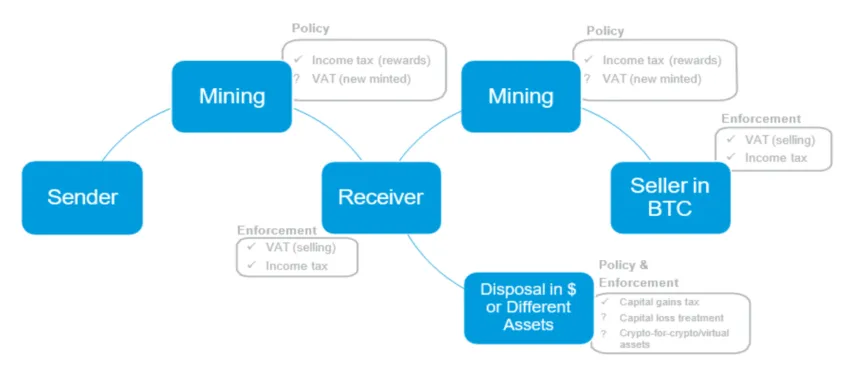There is a persistent feeling in the blockchain industry that U.S. regulators will seek to “crush cryptocurrencies” or stifle the growth of this innovative sector. This concern was further amplified by the Biden administration's controversial proposal to impose high taxes on Bitcoin and cryptocurrency miners.
Contrary to popular belief, the legal environment shaping the future of cryptocurrencies is far from a death sentence. Rather, it represents a complex dance between innovation and compliance.
High taxes could kill crypto innovation
The industry is desperate for legislation that provides clear direction as an election year slows legislative progress. While industry leaders remain optimistic about the future and stress the importance of blockchain companies preparing to comply with the final law, the Biden administration has announced new tax regulations targeting Bitcoin and crypto miners. We are aiming to introduce it.
The move has sparked widespread concern among industry investors that it could cripple the growing sector. The U.S. Treasury's 2025 revenue proposal outlines a 30% tax on electricity bills paid by crypto miners. This is a move that could have a significant impact on the industry.
“A company that uses computing resources to mine digital assets, whether owned by the company or leased from another company, will be subject to an excise tax equal to 30% of the cost of electricity used to mine the digital assets. ,” the U.S. Treasury Department wrote.
Read more: How to reduce your crypto tax burden: A comprehensive guide

The tax, called the Digital Asset Mining Energy Tax (DAME), is seen by many as spelling the end of crypto mining. Critics argue that such taxes would stifle innovation and force mining operations to relocate. This is a similar scenario to the population exodus witnessed in China in 2021.
Therefore, America's advantage could weaken as miners seek more comfortable conditions.
“The proposed 30% punitive tax on digital asset mining would destroy any foothold the industry has in the United States,” said U.S. Senator Cynthia Lummis.
As the debate continues, the broader implications for the U.S. economy and its position in the cryptocurrency market remain unclear. The Biden administration's proposal suggests a cautious approach to the crypto industry. This regulatory conundrum reflects a pivotal moment for the blockchain industry as Bitcoin and crypto valuations revive.
Still, Helium Foundation General Counsel Joshua Kirshner told BeInCrypto that the future of the industry does not depend on the complexity of operating a centralized platform. Instead, we rely on developing blockchain applications with concrete, value-added use cases.
Compliance with Cryptocurrency Regulation Guide
Despite legal scrutiny of centralized organizations, other projects beyond token trading and mining seem undaunted, pointing to a broader and more resilient blockchain ecosystem.
“The blockchain industry is much more interesting than just Binance, Coinbase, and other centralized exchanges. They play an important role in the ecosystem, but the future of the industry will not be through the trading of tokens. , will be defined by the actual use cases that create value,” Kirshner said.
The focus of regulatory actions on specific misconduct, such as the CFTC's settlement with Binance, highlights that not all aspects of the blockchain space are under siege. According to Kirshner, this is a reminder of the need for crypto companies to comply with strict regulatory requirements. These include sanctions compliance, anti-money laundering, and KYC protocols.
Mr. Kirshner emphasized the unique nature of blockchain projects, especially their immutable characteristics that require a compliance-first approach from the start. Unlike Web2 entities, which may revamp their legal framework after launch, blockchain initiatives require comprehensive compliance foresight that reflects sector-specific regulatory challenges.
“At Web3, we bring in experienced in-house counsel early on to work with engineering and product teams to ensure products are built with compliance in mind, before a product is released with immutable functionality. “It's important to put regulatory band-aids in place for blockchain projects, which is much more difficult than for typical Web2 companies,” Kirshner added.
Furthermore, the prevalence of insider trading within Web3 mirrors traditional industries, confirming the universality of legal standards beyond technological paradigms. This indicates that there is a broad need for legal clarity and adaptability to accommodate the unique characteristics of blockchain technology.
Kirshner advised new companies entering the cryptocurrency market to “get their lawyers in place” given the current regulatory environment.
“The need for innovation and growth is not inconsistent with regulatory compliance and investor protection. Hire in-house counsel early to provide strategic advice as you build. Recognize that this industry is still new and things will change rapidly in the coming years.” concluded Mr. Kirshner.
Read more: Cryptocurrency regulation: What are the advantages and disadvantages?
Ultimately, addressing the need for regulatory clarity and compliance reflects a shared vision for a future where blockchain technology can thrive responsibly and innovatively within a supportive legal framework. Masu. The question is not whether U.S. regulators are trying to kill cryptocurrencies, but how they can work with industry stakeholders to foster the growth and integration of cryptocurrencies into global financial and technology structures. That's it.
Disclaimer
In accordance with the Trust Project's guidelines, this feature article presents opinions and perspectives from industry experts and individuals. Although BeInCrypto is committed to providing transparent reporting, the views expressed in this article do not necessarily reflect the views of his BeInCrypto or its staff. Readers should independently verify the information and consult a professional before making any decisions based on this content. Please note that our Terms of Use, Privacy Policy, and Disclaimer have been updated.


